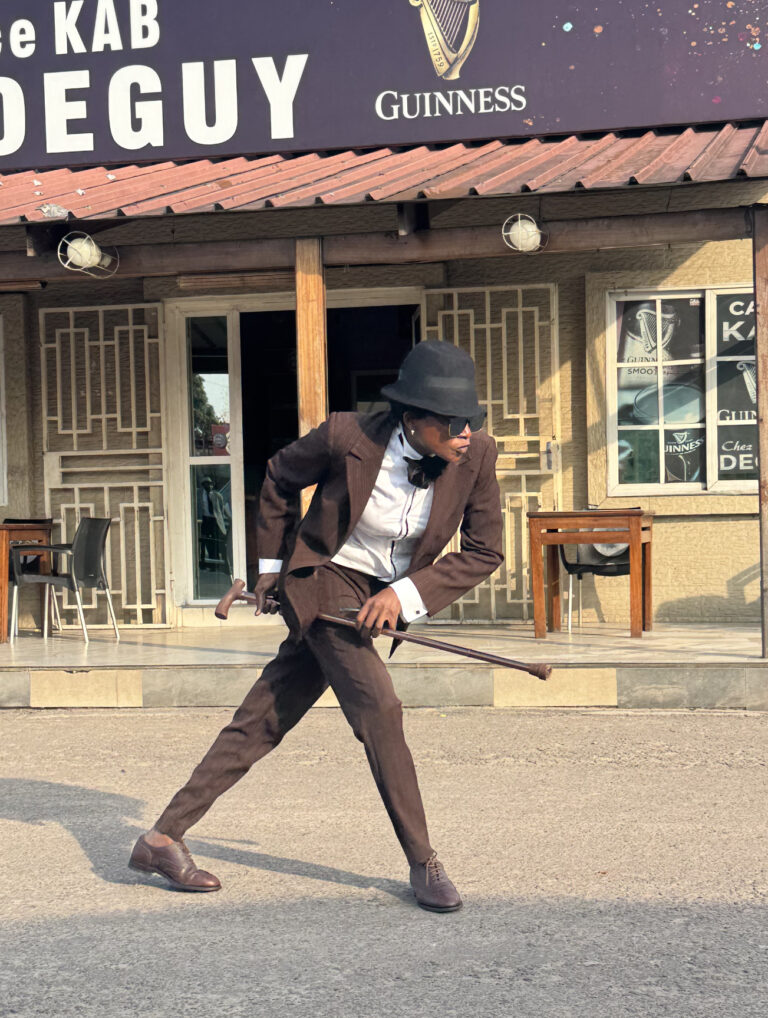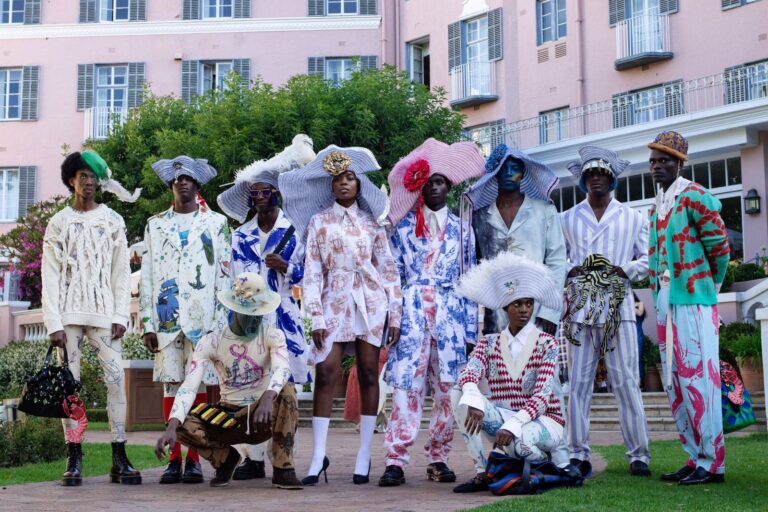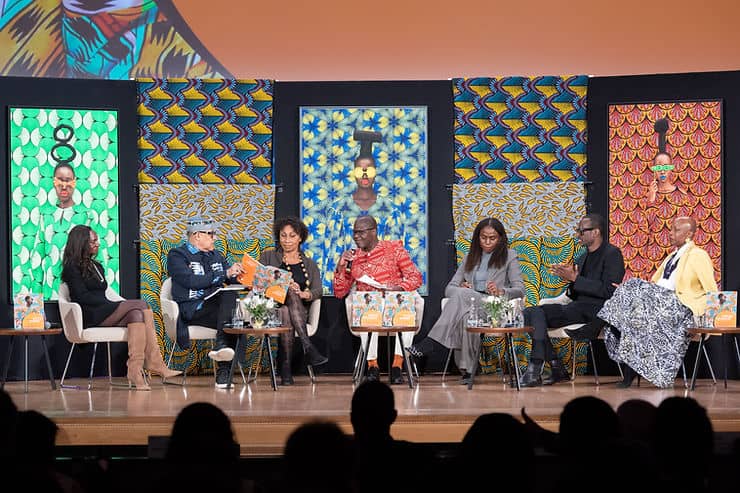
UNESCO Champions Growth & Challenges in African Fashion
Mia Macfarlane
Empowering the African Fashion Sector: UNESCO Partnerships Incubator Photos courtesy of UNESCO ©Cyril Bailleul.
In recent years, the global fashion landscape has witnessed a dynamic transformation. With a remarkable surge in Fashion Weeks across the African continent. From Lagos to Casablanca, via Dakar and Johannesburg. The proliferation of these events signals a vibrant and evolving fashion scene in Africa. UNESCO, recognizing the immense potential and challenges within the industry. Recently published a groundbreaking report titled “The fashion sector in Africa: trends, challenges, and growth opportunities.”
At the end of Haute Couture Week in Paris, UNESCO unveiled an in-depth report shedding light on the trends shaping the African fashion industry. The hurdles impeding its development, and the vast growth opportunities. The event featured insights from key figures in the fashion world. Including Omoyemi Akerele, Founder and CEO of Lagos Fashion Week; Imane Ayissi, Fashion Designer; Roberta Annan, Founder, African Fashion Foundation; Jina Luciani, Vice-Chair, Fonds de Dotation Maison Mode Méditerranée and Patrick Duffy, Founder of the Global Fashion Exchange and IRK’s Sustainability and Impact Director.
Right before the event, we sat down with celebrated haute couture designer Imane Ayissi from Cameroon. He opened our eyes to the heart of the problem when he said. “Everyone loves Africa but who really loves Africa? Because there is a lot of neglect and lack of respect.” He went on to tell us that ” Africa has talent. Africa has great artisans and has always had its own textile heritage that exists but the world knows it badly. I can mention the Kente from Ghana, I can mention the Faso in Burkina, I can mention the Mandjak from Senegal, the Rafia from Cameroon, Madagascar or Gabon. All these places have a history of textiles and savoir-faire.”
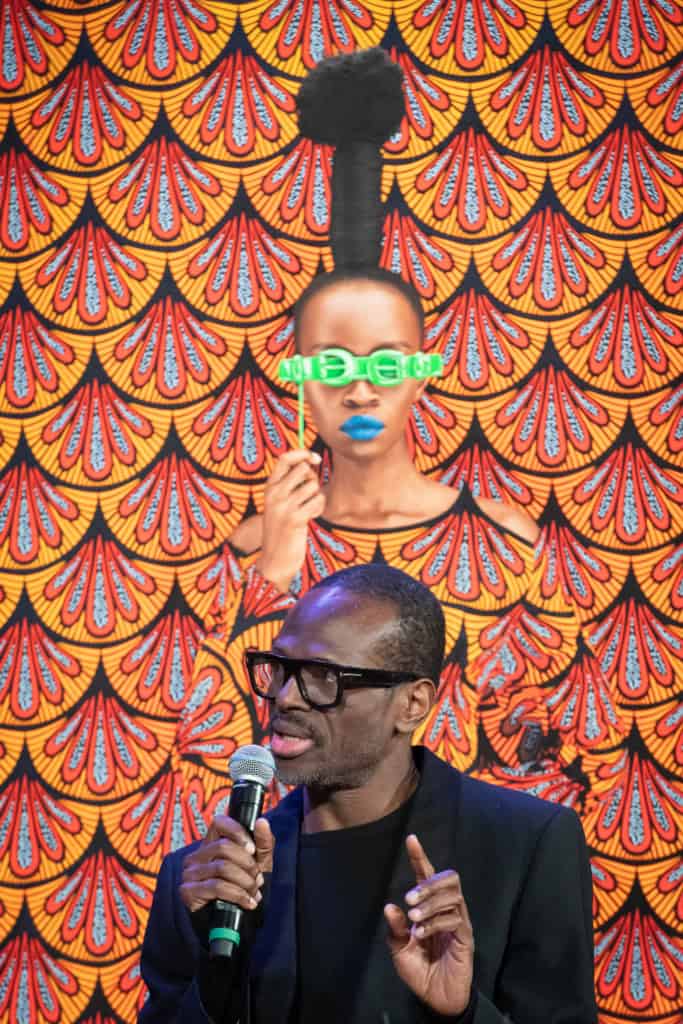
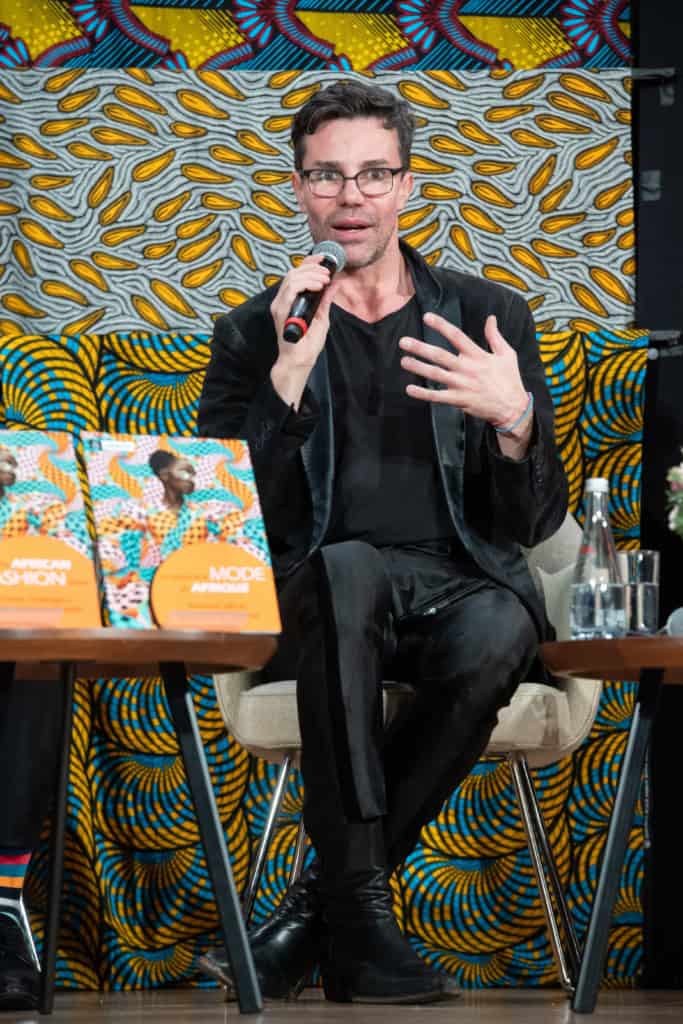
Empowering the African Fashion Sector: UNESCO Partnerships Incubator. Photos courtesy of UNESCO ©Cyril Bailleul.
One of the standout trends highlighted in the report is the increasing diversity and cultural representation in African fashion. Designers are drawing inspiration from their rich cultural heritage. Resulting in a broad spectrum of designs that celebrate the continent’s uniqueness. This diversity extends beyond the runway, encompassing models that showcase the beauty and variety of African identities.
In the opening remarks from the Director-General of UNESCO, Audrey Azoulay. Underscoring that fashion serves as a carrier of heritage. She specifically acknowledged that the traditional fabrics of the African continent are listed on UNESCO’s intangible heritage. Highlighting the rich cultural tapestry interwoven into the industry. Azoulay also remarked, “Designers are drawing inspiration from their rich cultural heritage. Resulting in a broad spectrum of designs that celebrate the continent’s uniqueness. This diversity extends beyond the runway, encompassing models that showcase the beauty and variety of African identities.”
Global recognition is another notable trend, with African designers gaining international acclaim. Imane Ayissi’s inclusion in the Paris Haute Couture calendar is a testament to the industry’s global impact. Opening doors for collaborations and showcasing Africa’s creative prowess on an international stage.
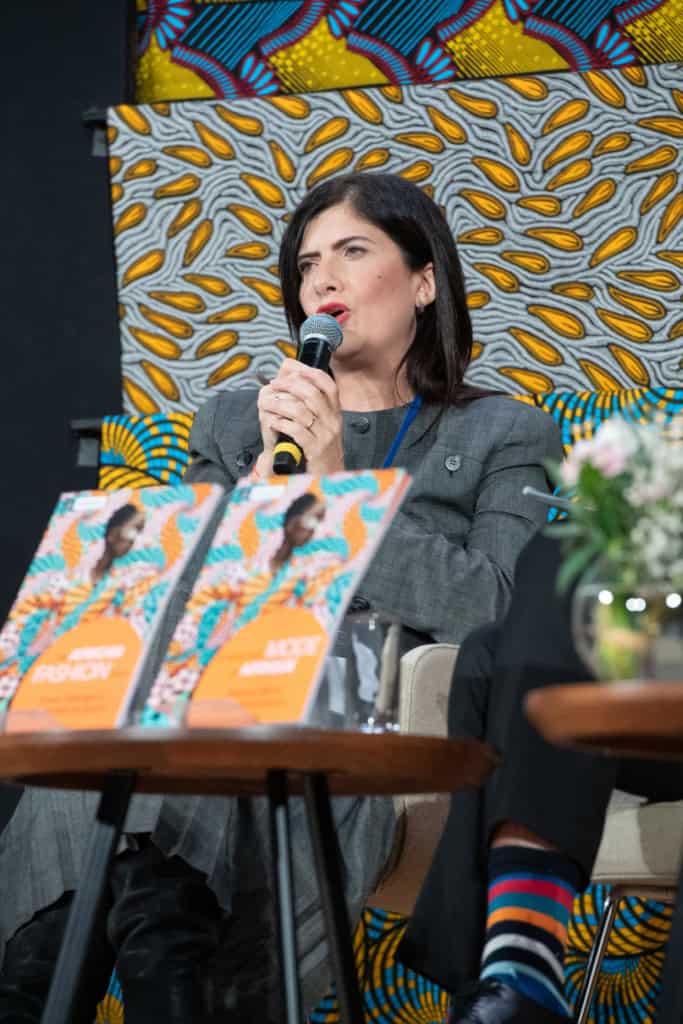
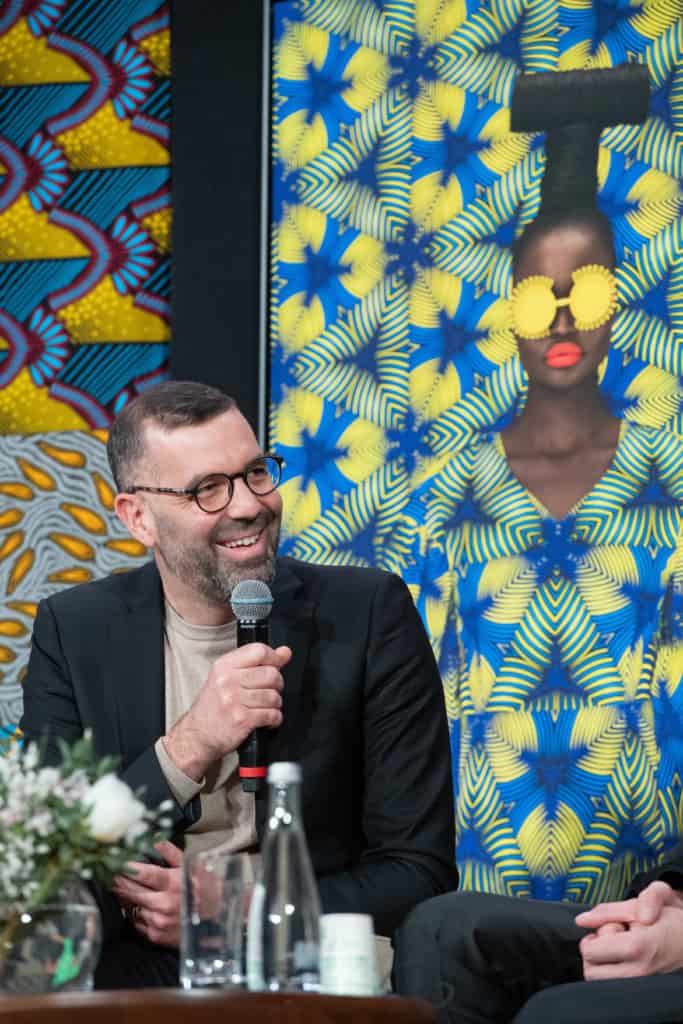
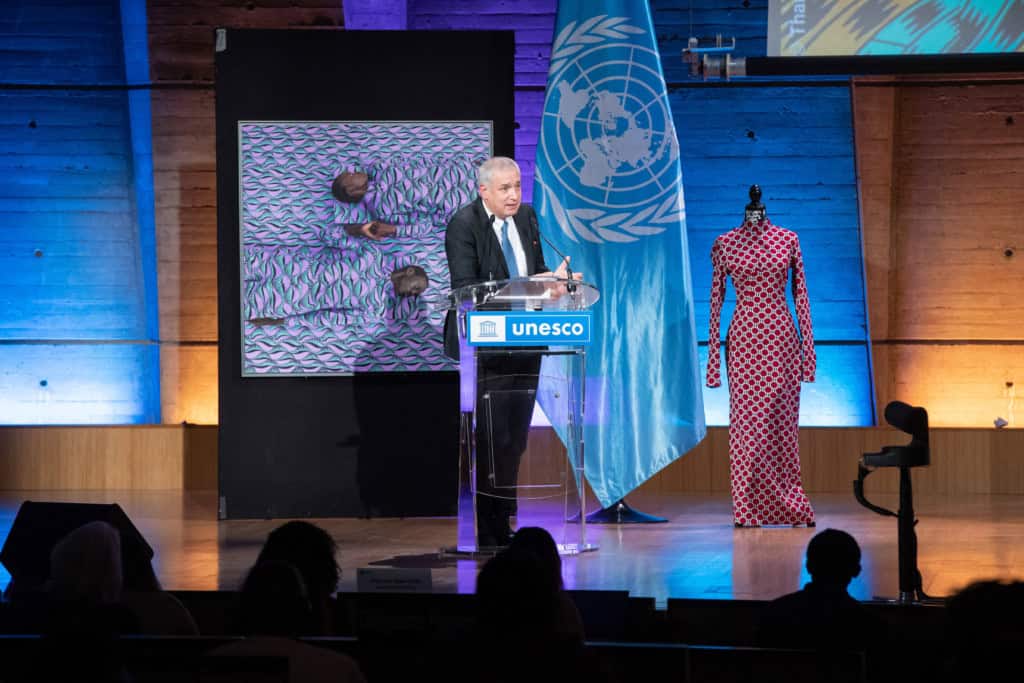
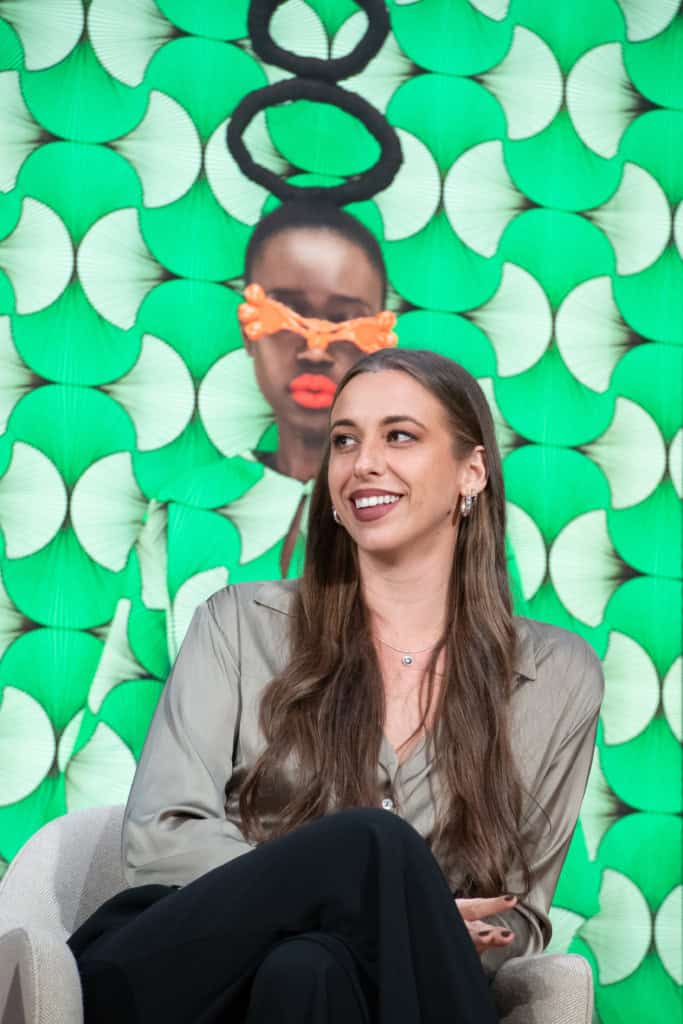
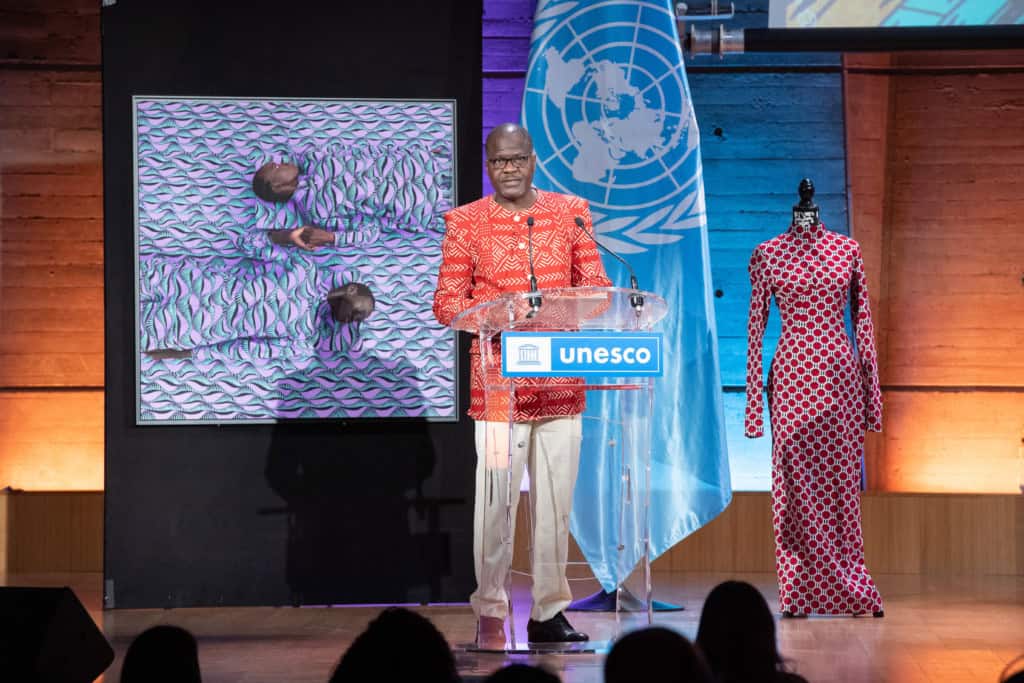
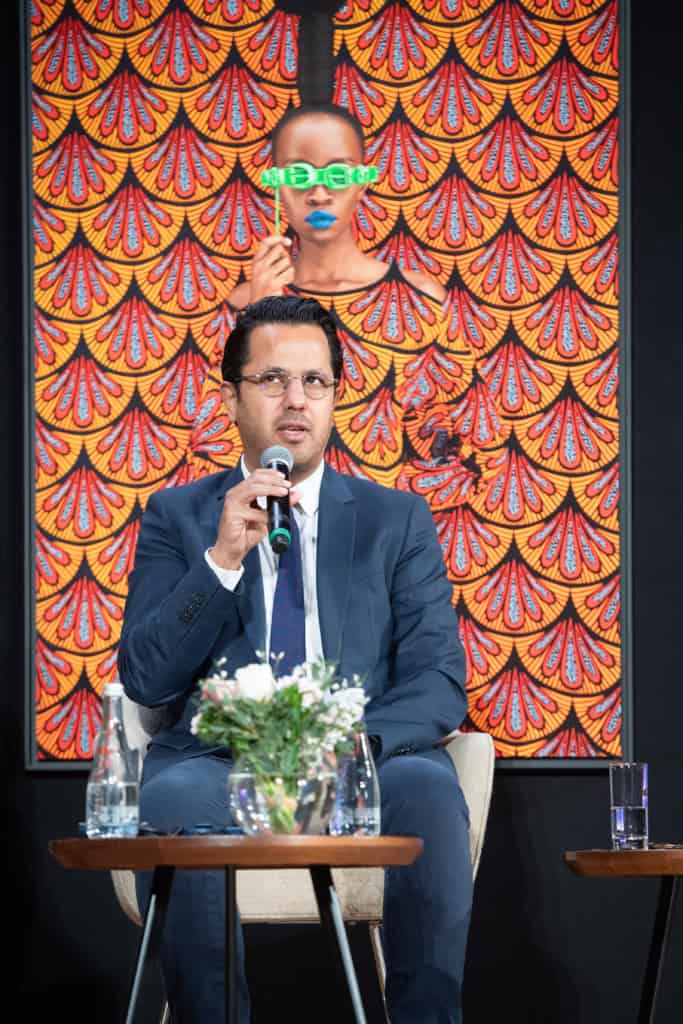
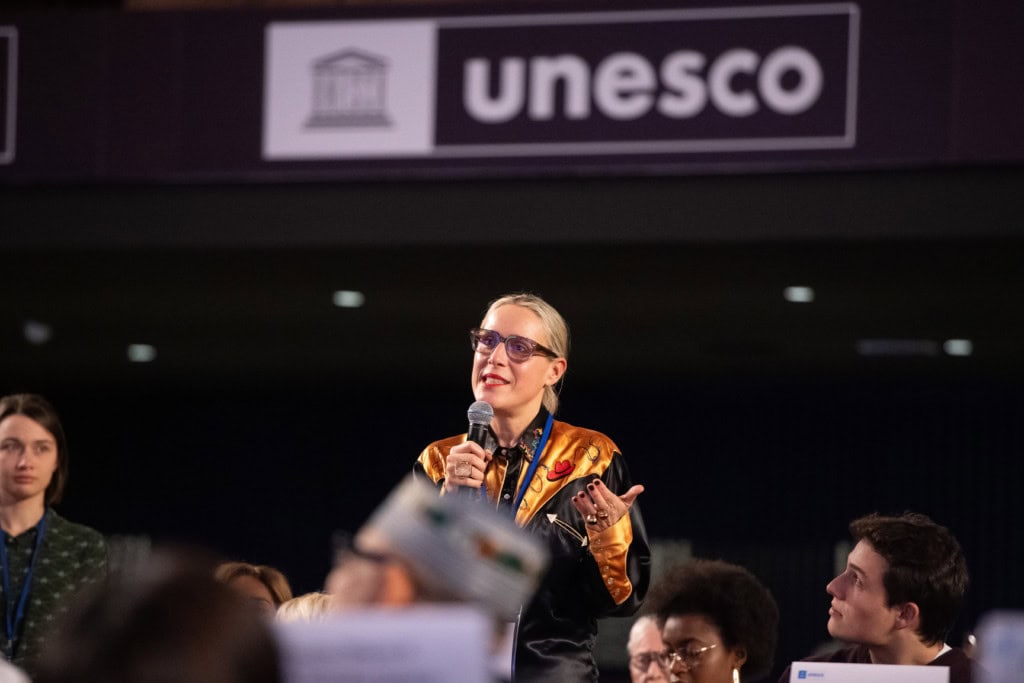
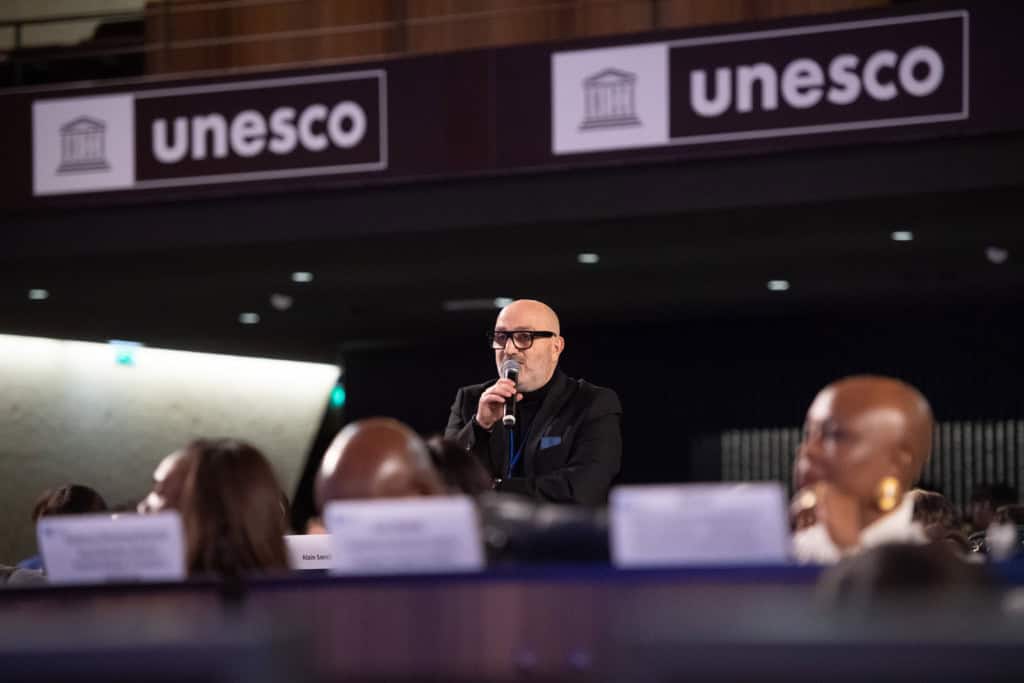
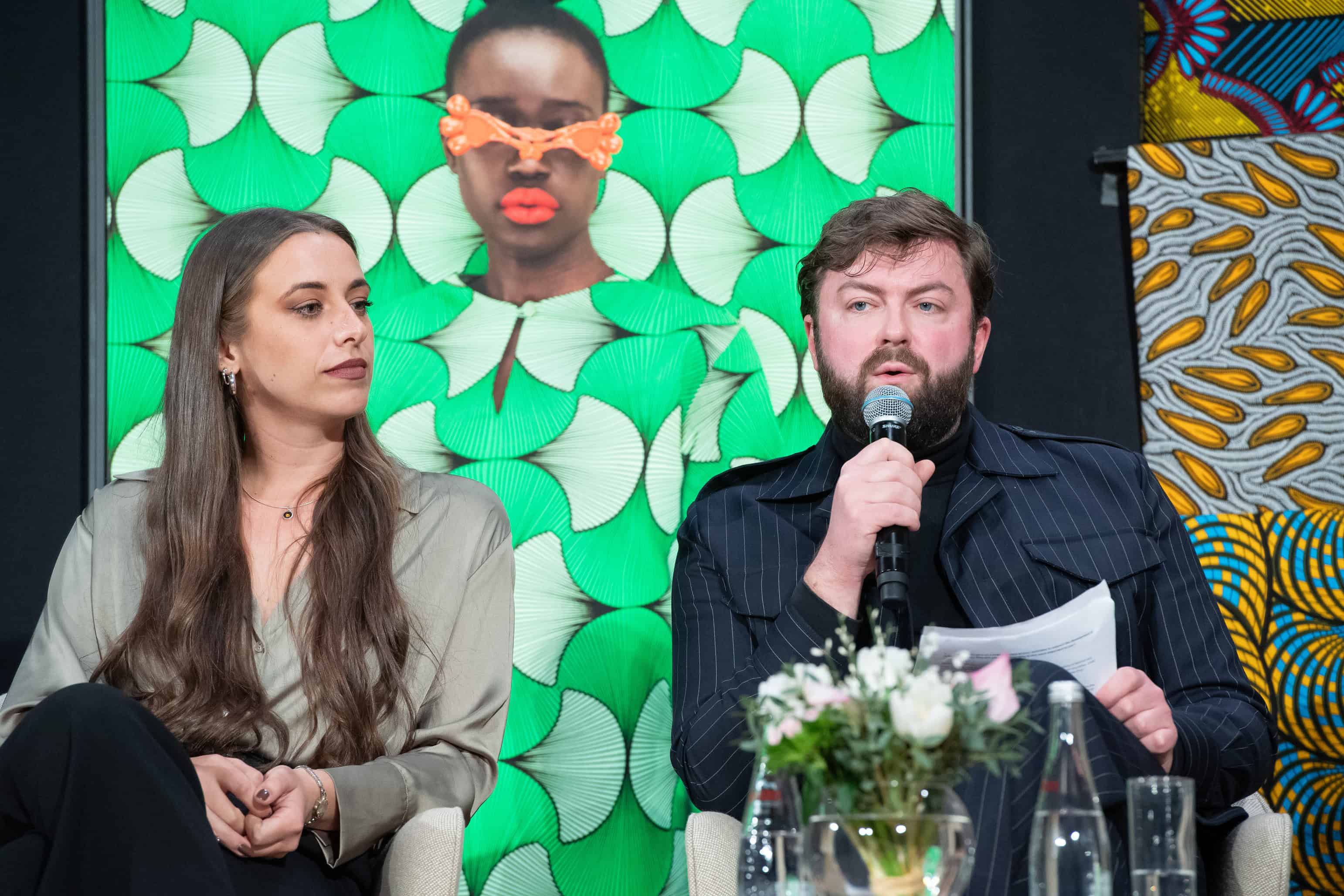
Empowering the African Fashion Sector: UNESCO Partnerships Incubator. Photos courtesy of UNESCO ©Cyril Bailleul.
Despite these positive trends, the report acknowledges several challenges that governments and decision-makers must address. To unlock the full potential of the African fashion sector. UNESCO emphasizes four key challenges. Strengthening legal protection for designers. Investing in small and medium-sized businesses. Establishing exemplary environmental standards, and improving knowledge transmission and training.
Ernesto Ottone, Assistant Director General for Culture of UNESCO, in his address at the event. Underscored the significant economic potential of the fashion sector in Africa. With a net worth estimated at $31 billion in 2020. The clothing and footwear market in sub-Saharan Africa remains largely under-exploited. The sector has the capacity to generate jobs, attract development investment, and achieve global recognition. Not only for designers but also for the local tailors, artisans, and entrepreneurs involved in the industry.
UNESCO’s commitment to supporting the growth of the fashion sector in Africa. Aligns with its broader mission in culture, science, and education. Ottone emphasized the importance of fashion as a symbol of freedom, creativity, innovation, and cultural heritage. The organization aims to contribute to the consolidation of the fashion industry in Africa. Recognizing its role in job creation, visibility, and self-expression on the world stage.
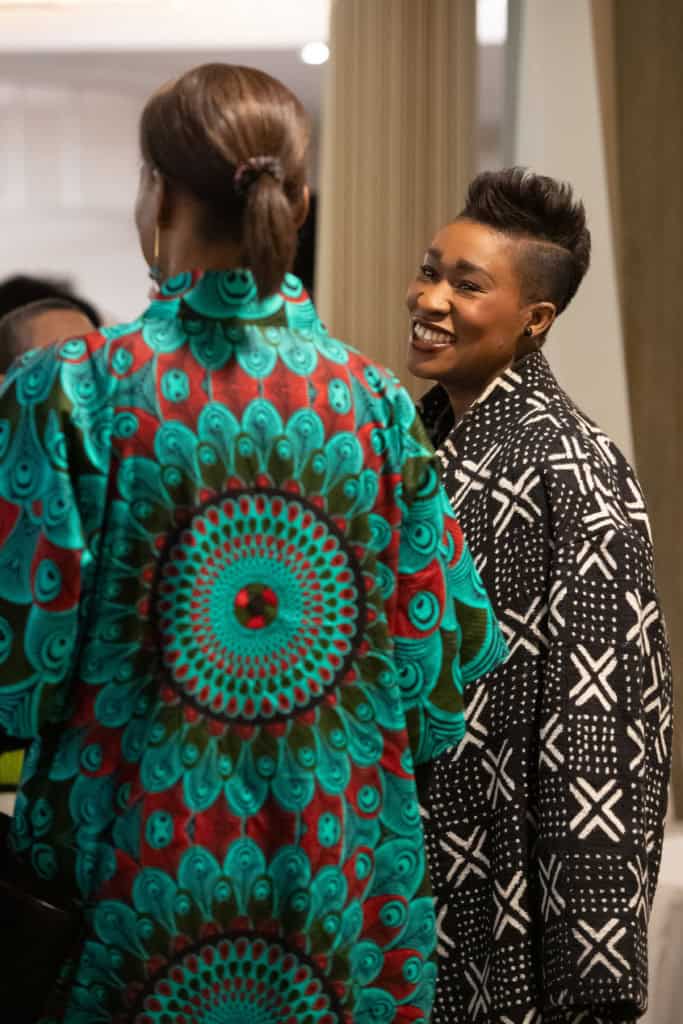
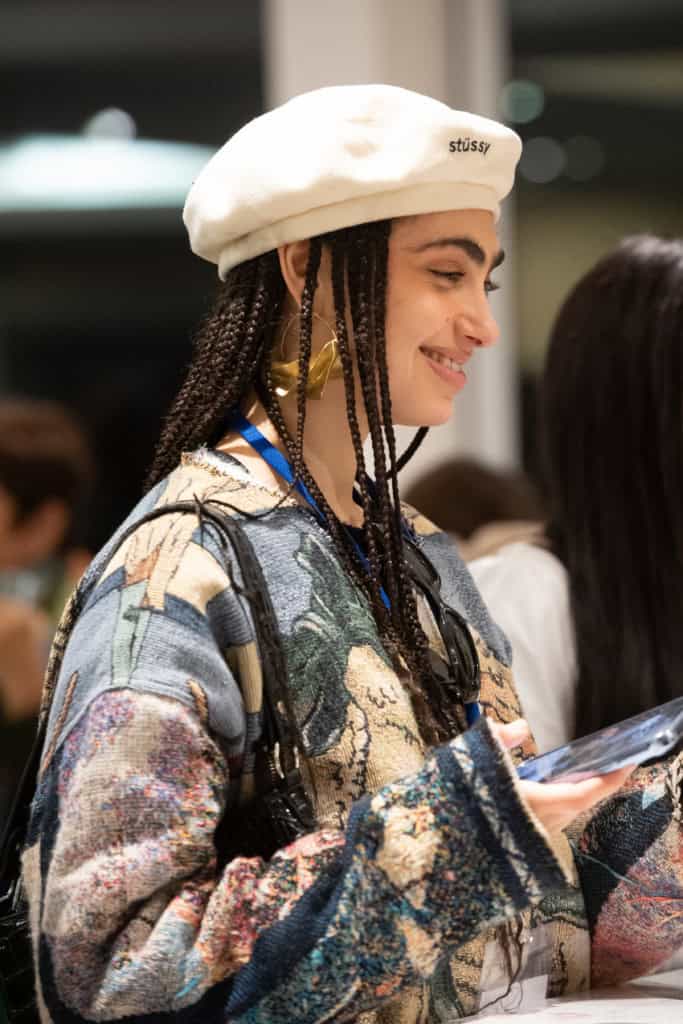
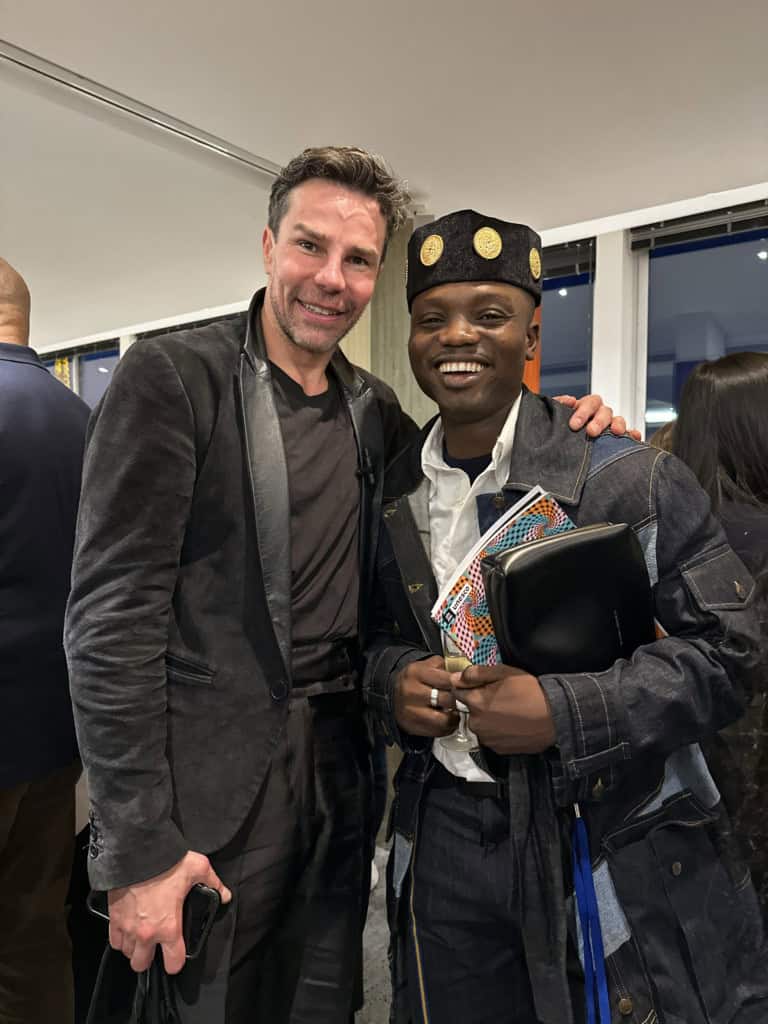
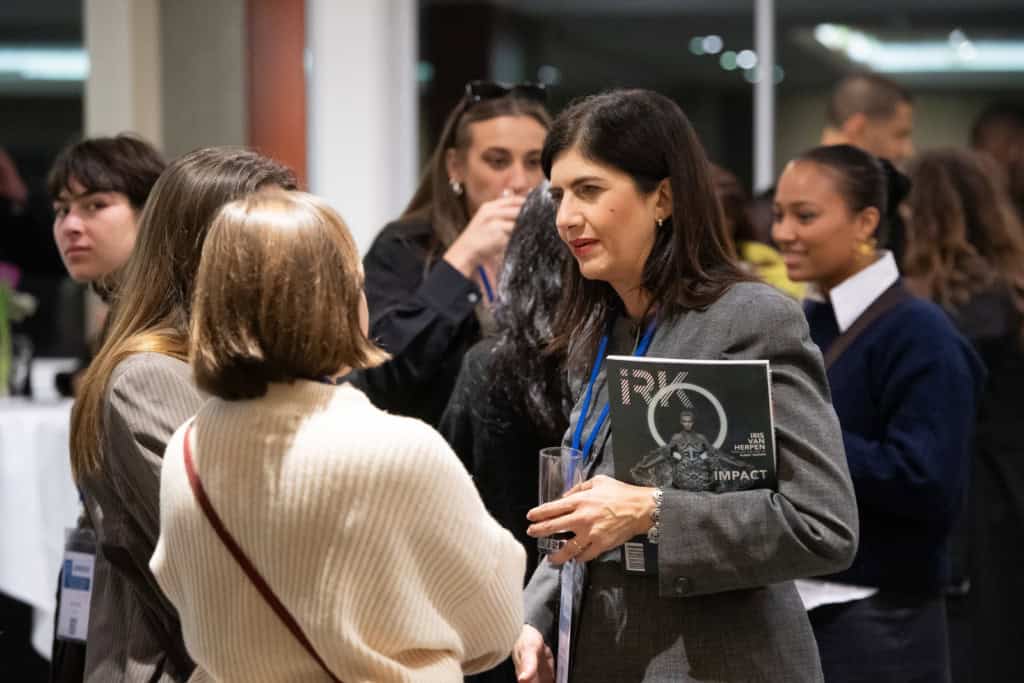
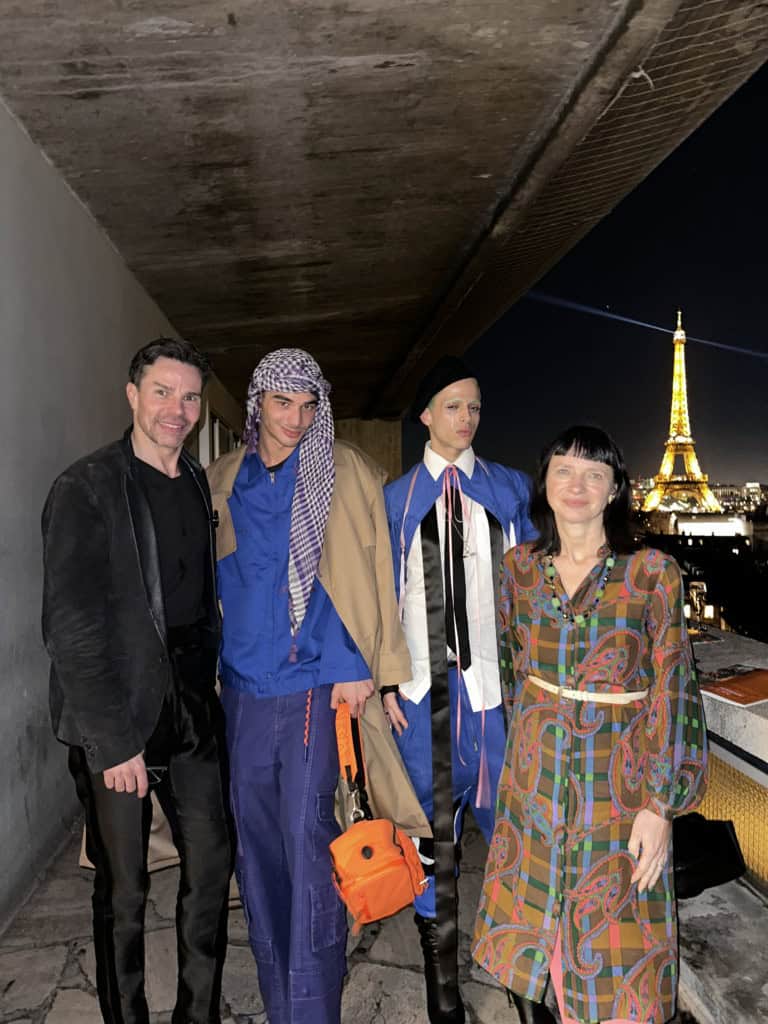
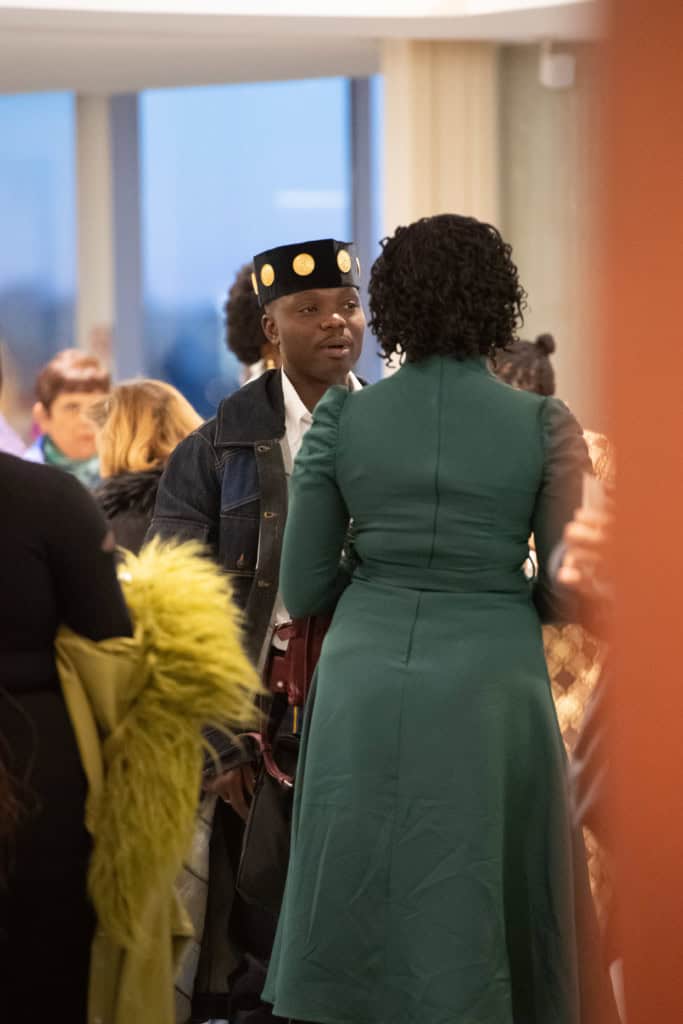
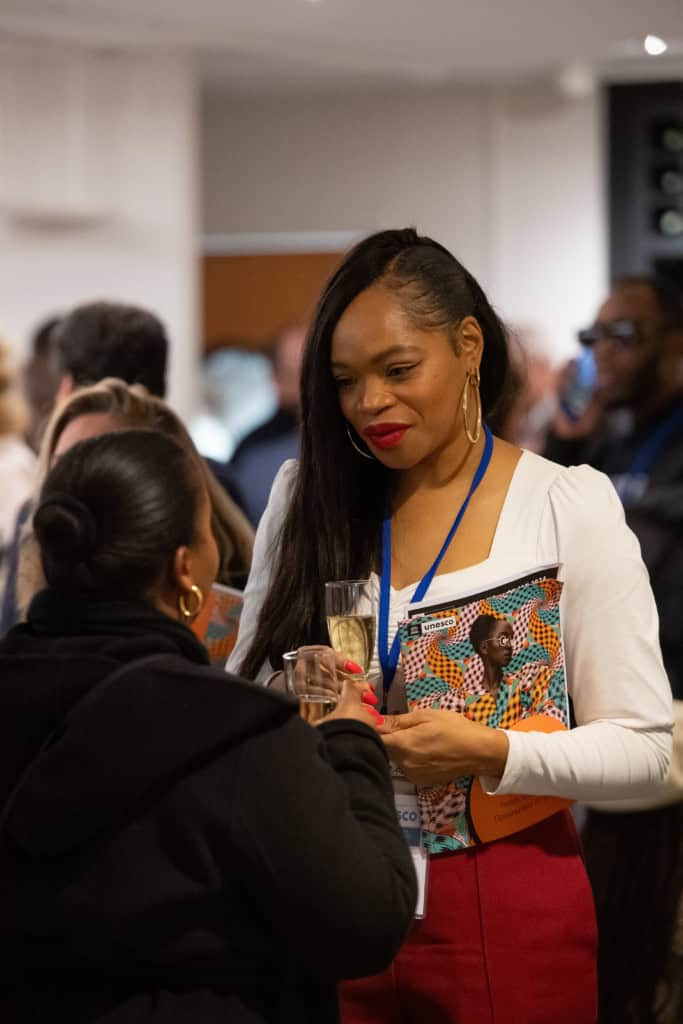
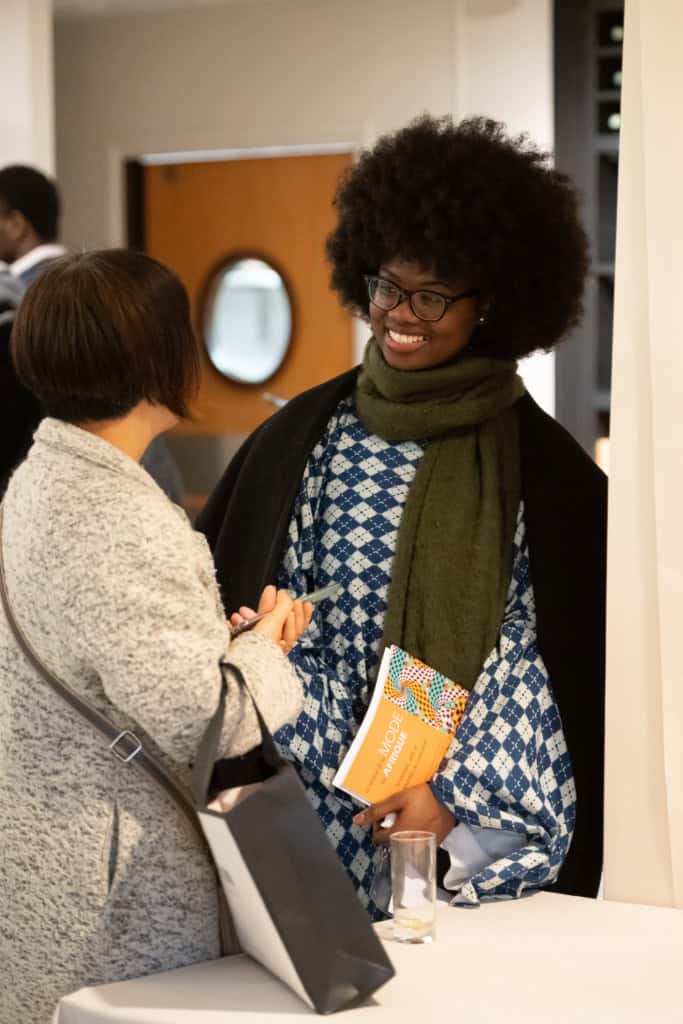
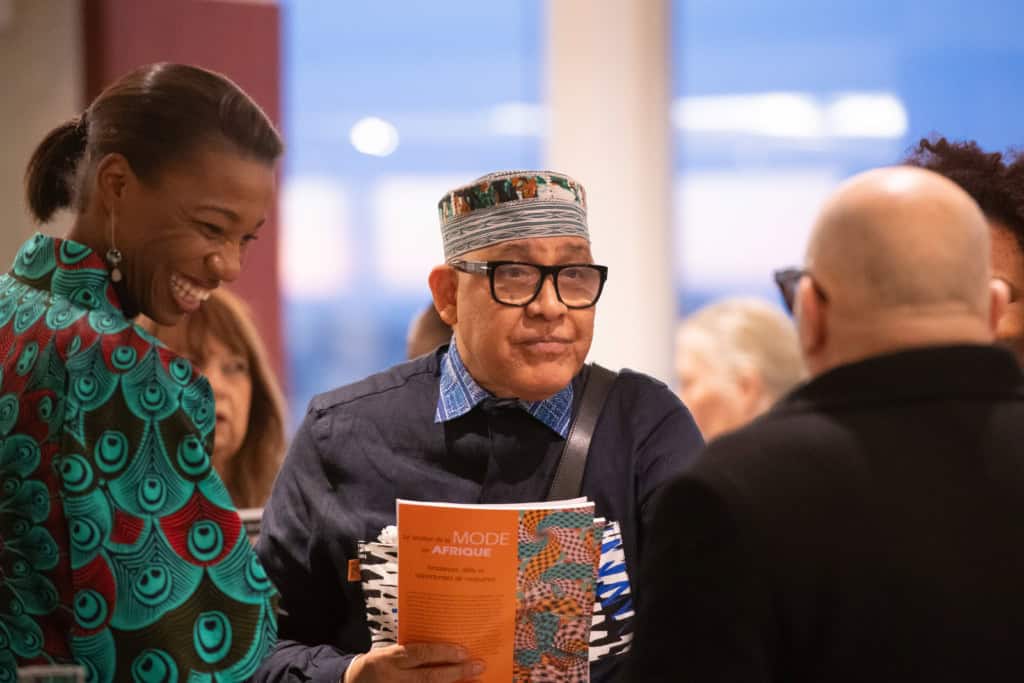
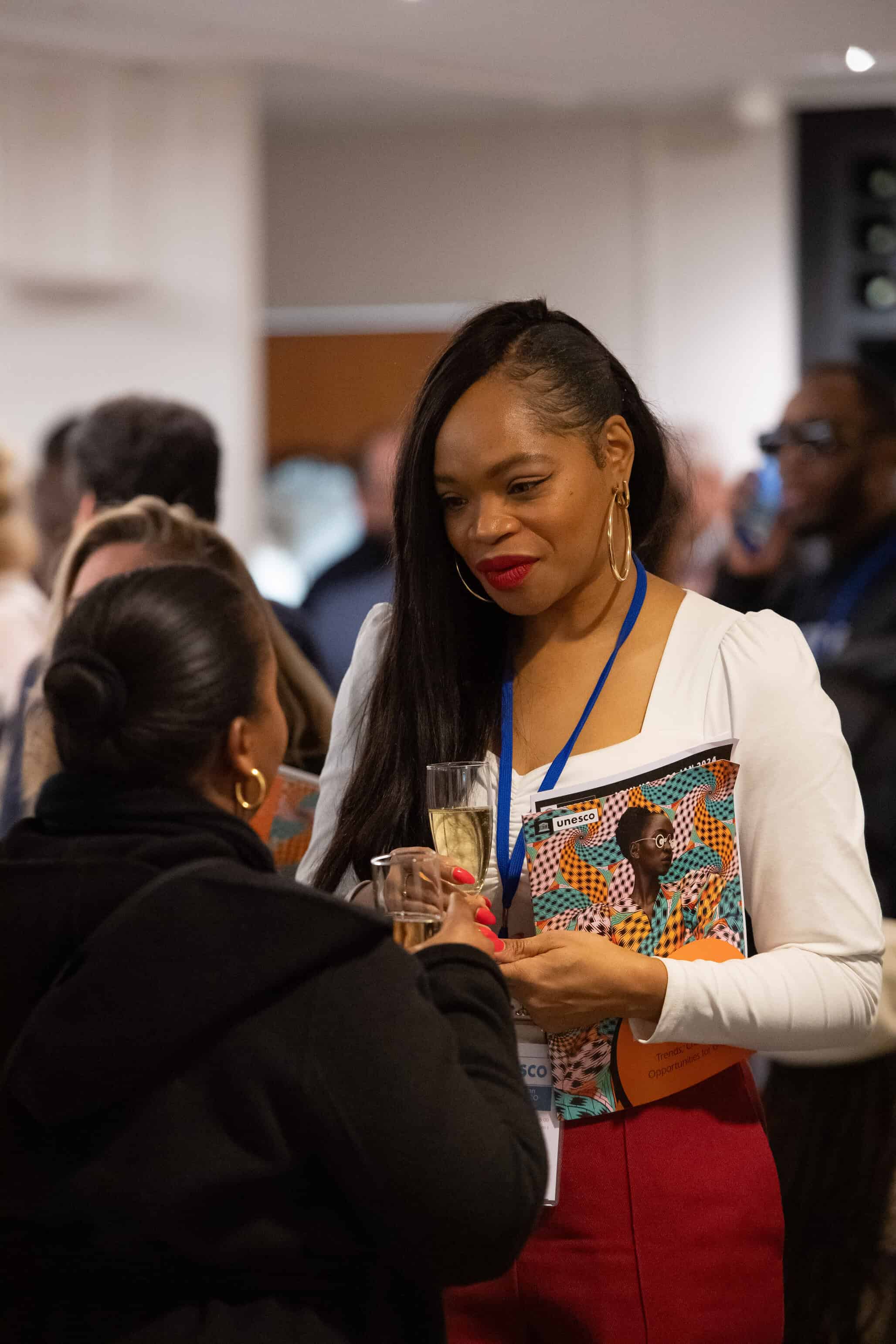
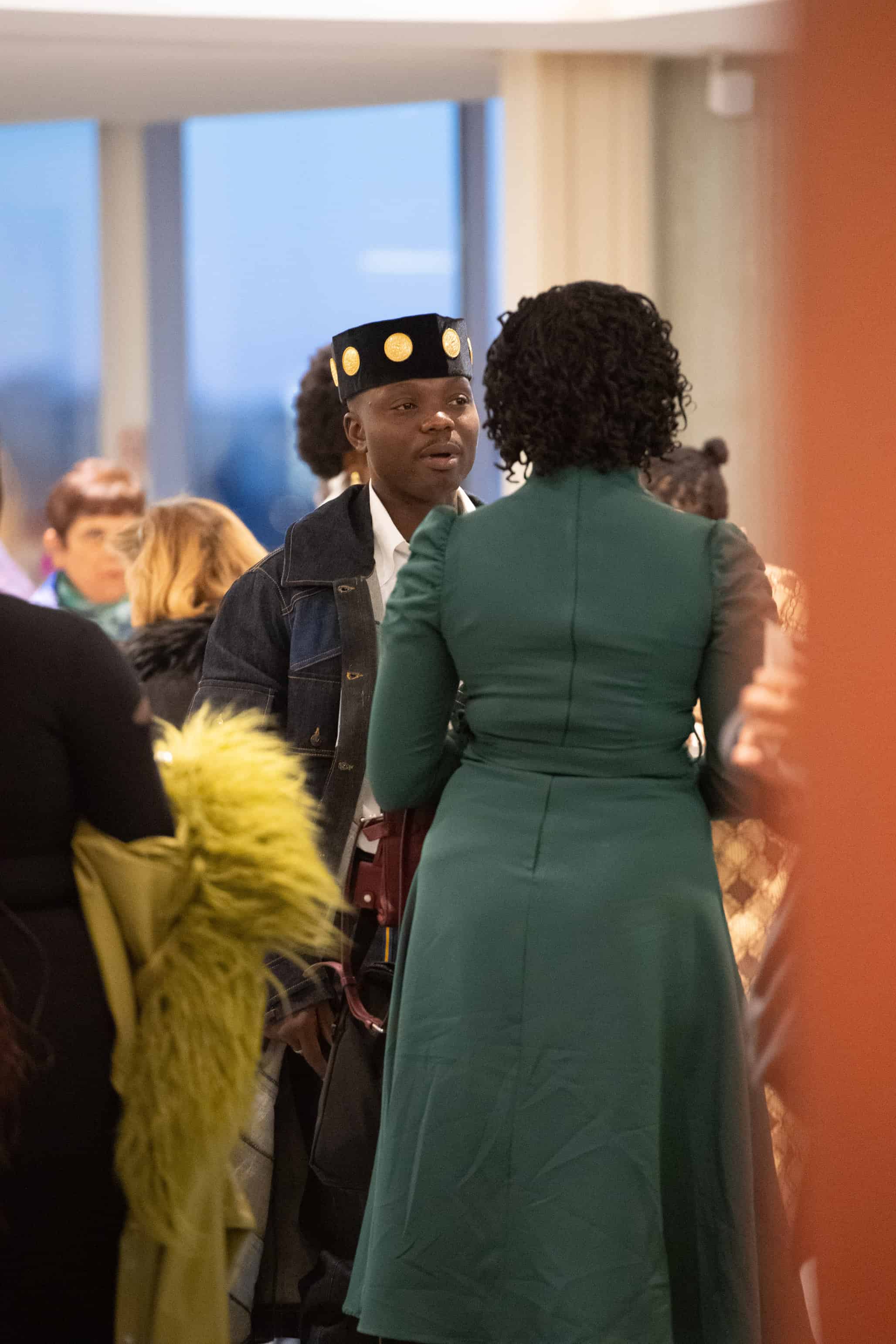
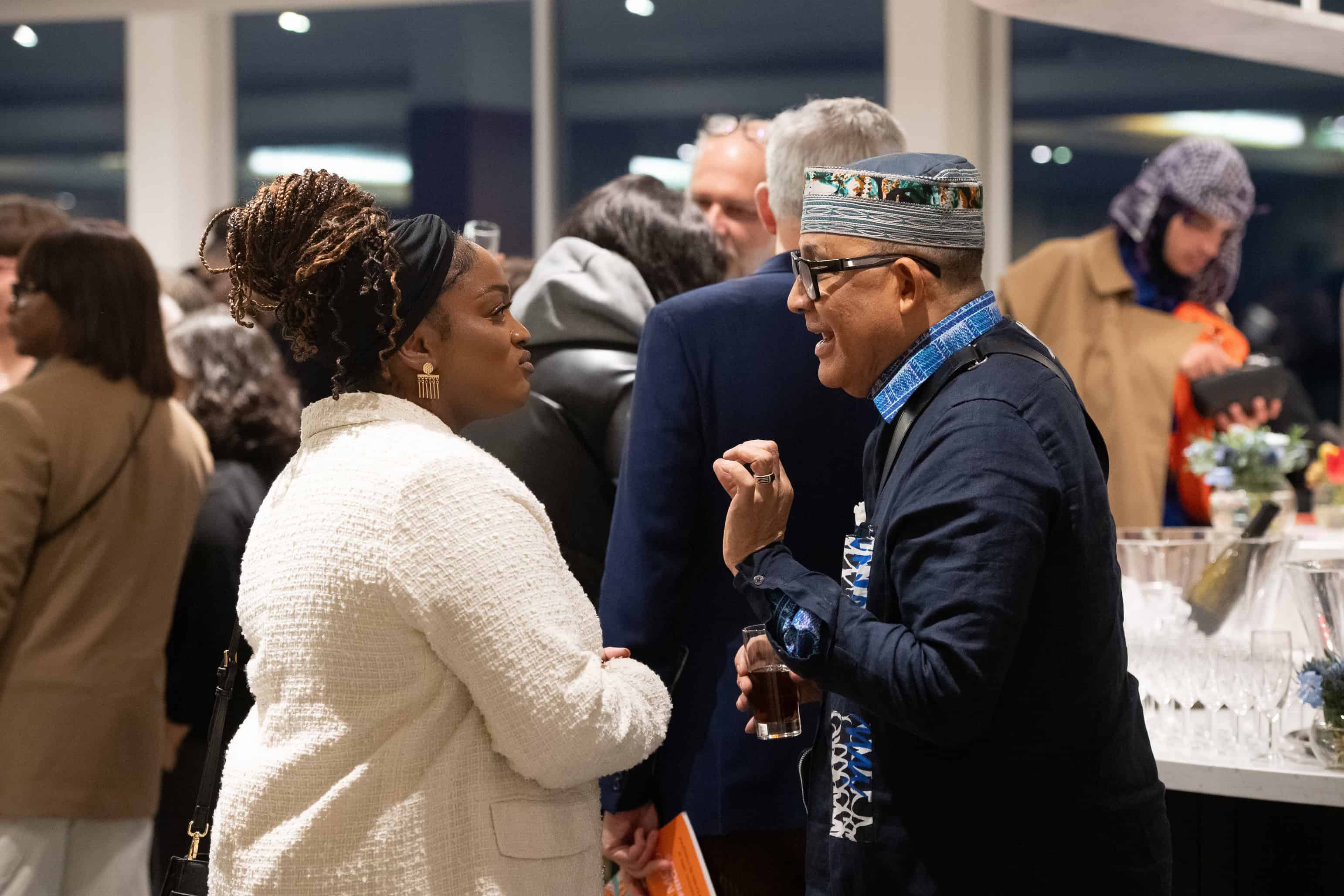
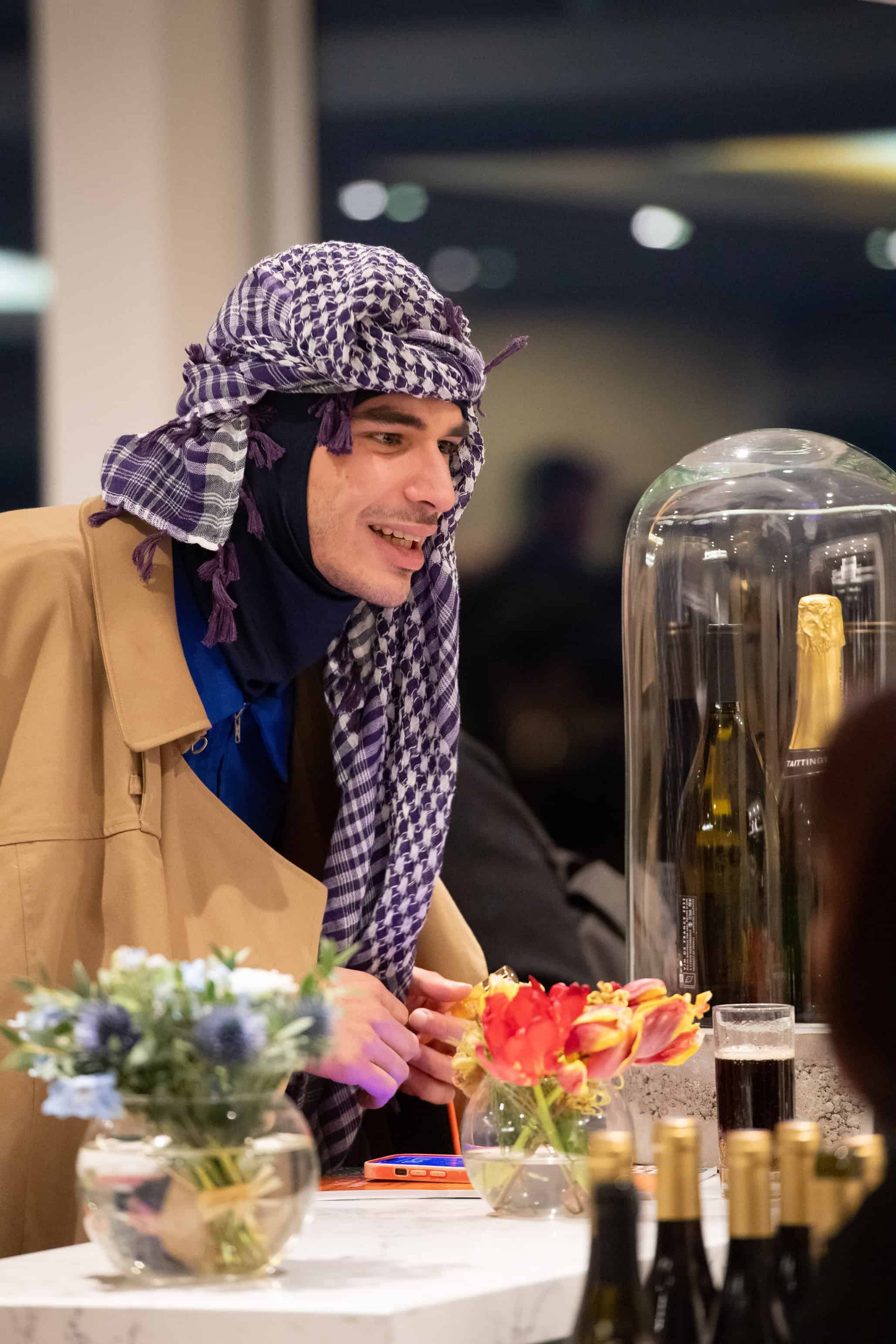

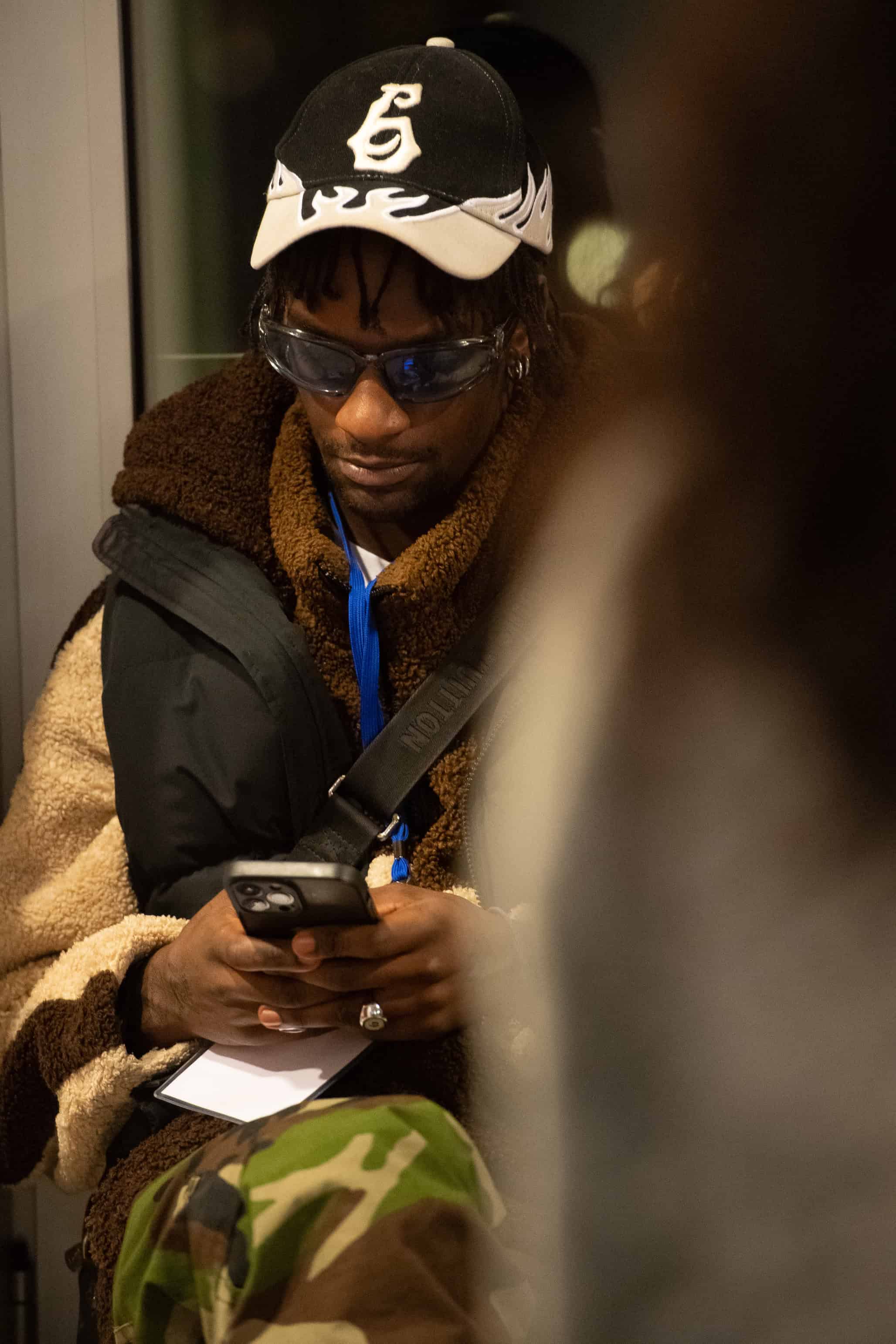
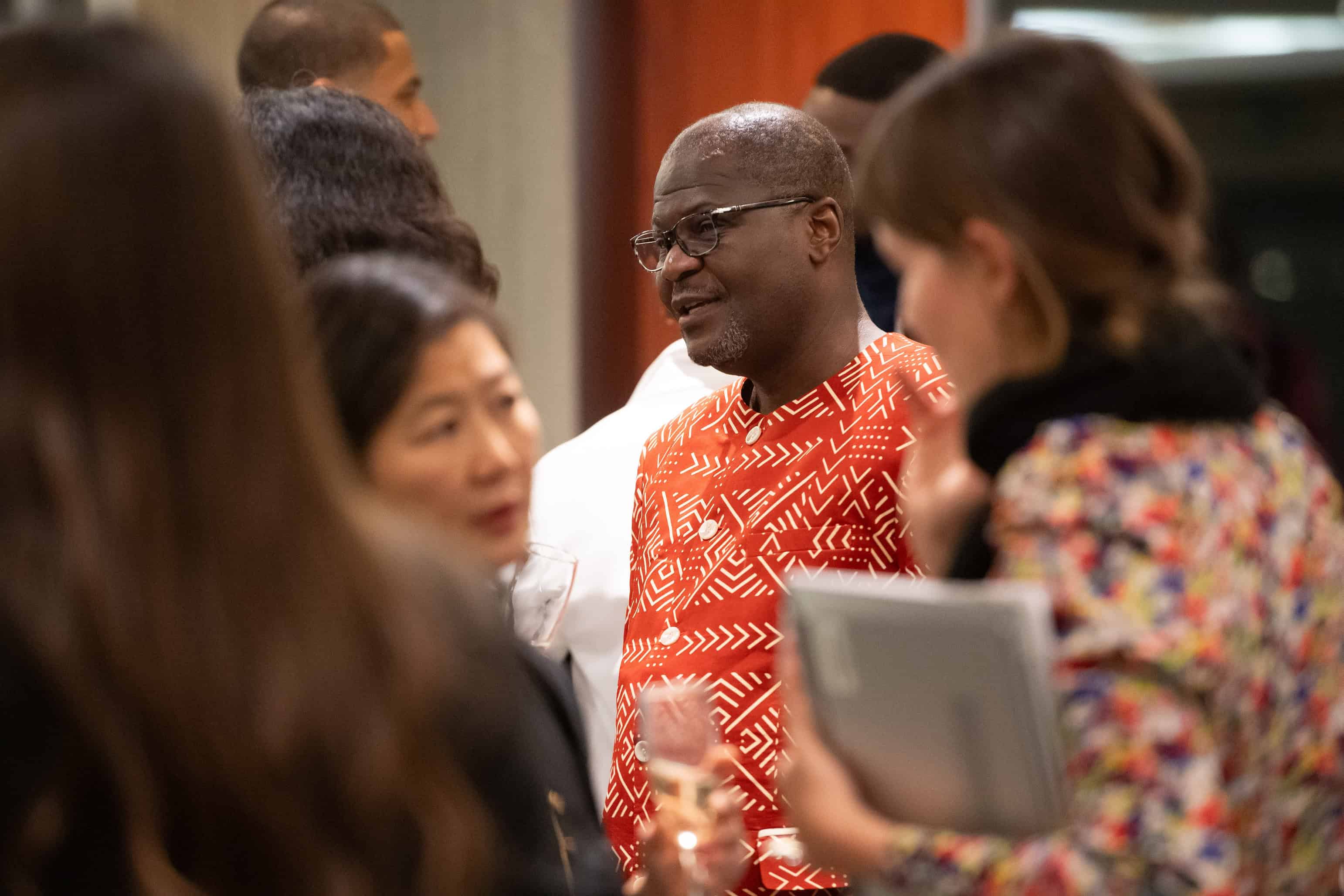
UNESCO AFRICA FASHION after party. Photos courtesy of UNESCO ©Cyril Bailleul.
The UNESCO event served as a platform to spotlight the transformative power of African fashion. Acknowledging its cultural richness and global influence. While celebrating the achievements of Afro-descendant designers and the dynamic fashion weeks across the continent. The organization calls for concerted efforts to address challenges. Foster innovation, and support the sustainable growth of the African fashion industry. GFX founder and panelist Patrick Duffy stated it well. “The fabric of African fashion is woven with stories of resilience, of heritage, of a continent bursting with untapped potential. UNESCO’s report lays bare the challenges, but it also illuminates the path forward. Let’s be the thread that strengthens this fabric. The needle that stitches opportunity, the hand that guides African fashion to its rightful place on the global stage. The time for talk is over; the time for action is now.” With this commitment, UNESCO sets the stage for a promising future. Where African fashion takes its well-deserved place on the global stage.
The event featured:
- Omoyemi Akerele (Nigeria), Founder and CEO of Lagos Fashion Week
- Alphadi (Niger), Fashion Designer and UNESCO Goodwill Ambassador for African innovation and creation
- Imane Ayissi (Cameroon), Fashion Designer
- Aissa Dione (Senegal), Textile Designer
- Laureen Kouassi-Olsson (Cote d’Ivoire), Founder and CEO of Birimian Ventures
- Lulu Shabell (Tanzania), Founder of Creativity Champion
- Roberta Annan, Founder, African Fashion Foundation
- Thomas Delattre, Director of Fashion Entrepreneurship Center, Institut Français de la Mode
- Patrick Duffy, Founder, Global Fashion Exchange
- Ammar Kessab, Governance Principal Specialist, African Development Bank (Fashionomics Africa)
- Jina Luciani, Vice-Chair, Fonds de Dotation Maison Mode Méditerranée
Share this post
One day when I was barely two my mom let me push her out of her bedroom. She was curious so she ran outside the house so she could watch me through the window. I climbed up on a chair by her vanity and started putting on her makeup. I loved playing dress up as a kid. Putting on my mom's sequin tube tops and high heeled shoes and then putting on a dance show in the lobby or the restaurant of the hotel/residence we lived in. It was the best childhood ever. Dress-up, dancing, playing with barbies, and drawing were my favorite things to do. I have not changed one bit today. If I am creating I am happy.
Now I am in Paris for the second time in my life and I am having a ball playing with my partner in crime Julien Crouigneau. We founded IRK Magazine together in 2015 and we are proud to collaborate with some amazing artists, and influencers.
We are also a photography duo under the pseudonym French Cowboy. We love to tell stories and create poetic images that are impactful.
Read Next


